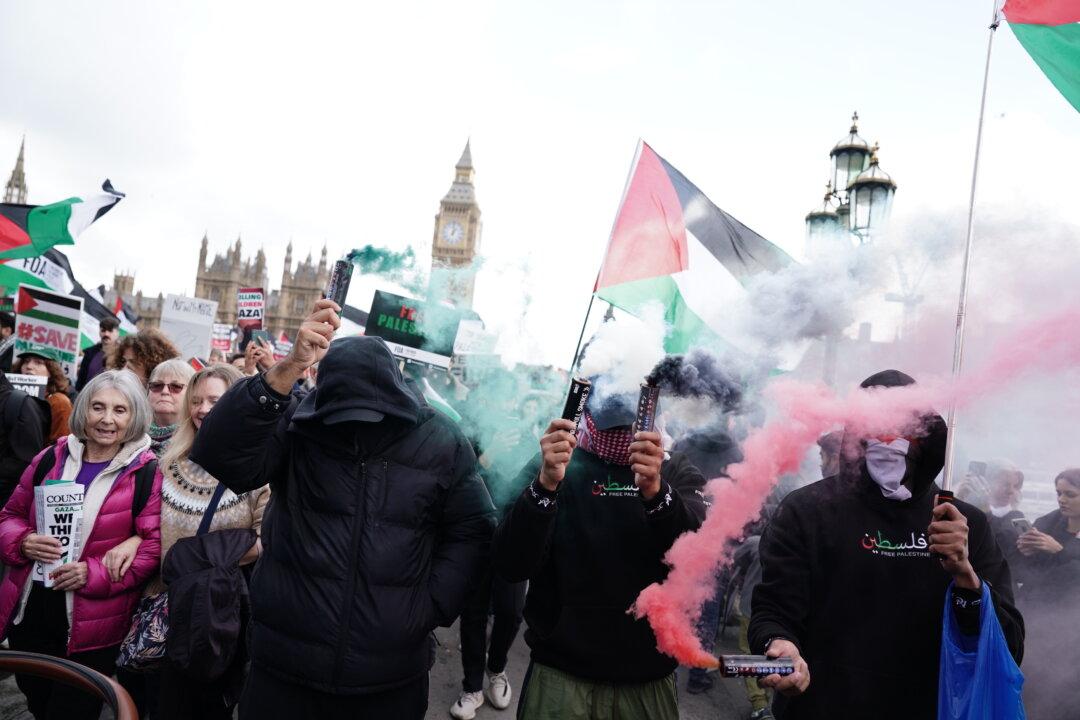Protesters chanting “jihad” may be prosecuted under current anti-terrorism law, said Jonathan Hall, KC, the independent reviewer of terrorism legislation.
In his report on terrorism legislation and protests, published on Thursday, Mr. Hall said those who chant “jihad” may be prosecuted under Section 1 of the Terrorism Act 2006, which criminalises statements that are likely to be understood as a direct or indirect encouragement or other inducement to the commission, preparation, or instigation of terrorist attacks.





